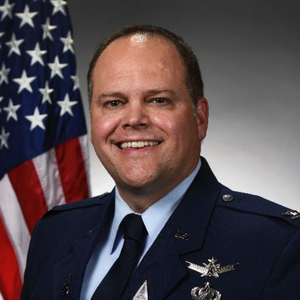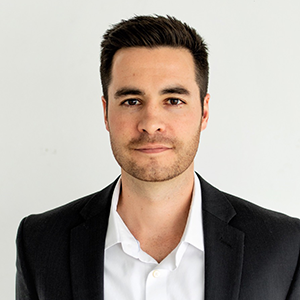

 Steve Kaufman
Steve Kaufman
A corporate partner and satellite practice co-head, Steve Kaufman uses industry knowledge and versatility to negotiate and close many types of deals globally.
For 18 of his 30 years at the firm, Steve served as outside general counsel for satellite clients, leading strategic joint ventures, “bet-the-company” contracts, financings, and M&A.
What Steve does best: understanding complex business issues and translating them into legal documents. If a client can describe something, Steve can draft it. Working from complicated to simple, he has many times reduced a lengthy contract into a few pages of bullet points, showing the client what it needs and how to obtain it. He has even written a business and financing model for parties in the form of an agreement. Many clients comment that the business guidance from Steve is as valuable as the legal advice.
Steve relies on his familiarity with issues common to satellite and communications companies to give him an edge in negotiations. This experience produces extra benefits when Steve deals with specialized satellite contract terms, targeted warranties, creative covenants, use of insurance to close gaps, license and spectrum issues, and even finance and accounting matters. According to Chambers Steve Kaufman is “a real authority and somebody who will always know the answer.”
In advising clients, Steve emphasizes practicality, striving to achieve the client’s business objectives for the transaction, whether economic, risk reduction, regulatory/compliance, or transaction speed. This carries over into deal management as well as negotiations, where he willingly takes the lead. Steve and satellite practice co-head Randy Segal are regulars at the satellite conferences, making connections among clients and even adverse parties. He is listed in Chambers, Super Lawyers, and Legal 500.
 Brig. Gen. Steven J. Butow
Brig. Gen. Steven J. Butow
Steve “Bucky” Butow is the Director of the Space Portfolio at the Defense Innovation Unit (DIU). He joined the team in 2015 as an early plank owner when DIU was known as the Defense Innovation Unit Experimental (DIUx) and helped establish the organization’s operating locations in Silicon Valley, California; Boston, Massachusetts; and Austin, Texas.
In his reserve capacity, Butow is a Brigadier General serving as the Commander of the California Air National Guard where he leads 4,900 Airmen assigned to five wings and a headquarters staff. Prior to this assignment, he was a Special Assistant to the Director, Air National Guard.
Butow is a former Commander of the 129th Rescue Wing at Moffett Federal Airfield, CA, where his responsibilities included organizing, training, equipping, and maintaining 970 combat-ready forces and $1 Billion dollars of special mission aircraft and equipment supporting the U.S. Air Force’s combat rescue and personnel recovery missions. He has previously served as the Deputy Director of the Joint Search and Rescue Center for U.S. Central Command in 2005, and as Chief of Personnel Recovery for U.S. Air Forces Central in 2007 supporting Operations IRAQI and ENDURING FREEDOM. Prior to joining DIU, Butow was the Vice Chief of the Joint Staff, California Military Department with responsibilities including cybersecurity, incident awareness and innovation. He has more than 3,500 flying hours in T-37, T-38, C-130, HC-130 and MC-130P aircraft.
As a researcher with the Search for Extraterrestrial Intelligence (SETI) Institute, Butow worked on instrument concepts for Mars surface soil analysis at NASA Ames Research Center in Mountain View, CA. He later served as co-principal investigator for a series of airborne science missions for which he was recognized for outstanding achievement and contributions to the Space Science Division in 1999 and received an Ames Honor Award as a member of an Astrobiology Mission Project Team in 2000.
Butow graduated from San Jose State University with a B.A. in Physics & Astronomy and earned a M.S. in Management with specialization in Air and Space Strategic Studies from the University of Maryland. He has also completed executive courses at Harvard’s John F. Kennedy School of Government, and was a member of the National Leadership Preparedness Initiative (NPLI) Cohort 16. Butow is a lifetime member of the Honor Society of Phi Kappa Phi for academic achievement.
 Joe Cassady
Joe Cassady
Mr. Cassady is the Executive Director of Space Programs in the Washington DC Operations for Aerojet Rocketdyne where he helps oversee strategy development and architectures for future space and launch systems. He obtained his BS (1981) and MS (1983) in Aeronautics and Astronautics from Purdue University as well as a Graduate Certificate in Systems Engineering at the George Washington University in 2005. His current interest areas include architectures for human missions to Mars, Space Mobility and Logistics (SML) and space debris remediation. Mr. Cassady holds five U.S. Patents for Electric Propulsion (EP) technology.
He has four decades of experience in propulsion development, flight operations, mission architecture and systems analysis. He has authored more than 70 technical papers dealing with EP, power and attitude control systems and mission analysis and recently co-authored a textbook, Rocket Propulsion, with Professors Heister, Anderson, and Pourpoint of Purdue University. Prior to joining the Aerojet Rocketdyne Washington office, Mr. Cassady led flight project teams for the 26 kWe ESEX arcjet system (which still holds the record as the highest power EP system flown) and the EO-1 Pulsed Plasma Thruster system.
In addition, he has served on a number of advisory groups for NASA and the DoD. He is an Associate Fellow of the AIAA, is vice-president of the Electric Rocket Propulsion Society and serves as Executive Vice President and member of the Board of Directors for ExploreMars, a 501c(3) non-profit dedicated to promoting STEM and human Mars exploration. In 2021, he was named as an Outstanding Aerospace Engineer by the School of Aeronautics and Astronautics at Purdue and he was elected as a Corresponding Member of the International Academy of Astronautics in 2022. It is his lifelong goal to see humans join their robotic precursors on the surface of the Red Planet.
 Col. James Horne
Col. James Horne
Col James T. Horne, III is the Senior Materiel Leader, Launch Execution Acquisition Delta, Space Systems Command, Assured Access to Space. He leads a 350+ member team executing the $12.3B National Security Space Launch program that directs production, integration and launch of the Falcon, Vulcan, Atlas and Delta systems.
Col Horne recently served as the Deputy Director, Assured Access to Space Directorate, and Deputy Director, Operations, Space Systems Command. He facilitated the integration space mobility plans, policy, requirements and capabilities to rapidly launch, sustain and reconstitute national security space assets.
Col Horne received his commission from the United States Air Force Academy in May 2000 and earned a
Masters of Business Administration from the Marshall School of Business at the University of Southern California in 2007. He transferred to the United States Space Force in June 2021. He has commanded the 30th Range Management Squadron at Vandenberg AFB, CA; served as Materiel Leader and Chief Engineer, Atlas V, at Los Angeles AFB, CA; and the Chief of ICBM Standardization and Evaluation, and as a Minuteman III Missile Combat Crew Commander, Evaluator and Assistant Director of Operations. His acquisitions experience includes work with Tactical Data Link systems in support of Operations Enduring Freedom, Iraqi Freedom and Noble Eagle, as well as space launch supporting the design, development, qualification and first flights of the Atlas V rocket program. In the deployed environment he has served as a Personal Representative to Enemy Non-Combatant Detainees from the Global War on Terror, at the Joint Detention Group, Naval Base Guantanamo Bay, Cuba. His staff assignments include Headquarters Air Force and the Office of the Secretary of Defense.
 Clint Hunt, Col., USAF (Ret.)
Clint Hunt, Col., USAF (Ret.)
Clint Hunt, Colonel, USAF (Retired), is the director of intelligence and defense programs for United Launch Alliance (ULA). In this role, Clint is responsible for engagement with the Department of Defense and Intelligence Community to ensure the missions need are met.
Clint previously served 27 years as an operator and acquisition officer in the United States Air Force, focusing largely on space control, intelligence and space launch systems. In his final assignment, he was the director, Office of Space Launch at the National Reconnaissance Office (NRO). In this role, Clint led several hundred government and industry team members at five locations, executing a multi-billion dollar budget across the future year’s defense plan. He was also responsible for the technical and operational planning and execution of the NRO’s launch requirements.
Prior to this assignment, Clint served as the chief, Space Control and Advanced Technology Division at headquarters Air Force, representing an eight-billion dollar portfolio that encompassed 28 space control-related programs, and advocating for Space Control requirements with the other services, Congress, Office of the Secretary of Defense, Joint Staff, Intelligence Community and the White House. He held numerous other leadership assignments during his career, serving as the chief of the Space Professional Management Office at Headquarters Air Force Space Command and commanded the 1st Air and Space Test Squadron at Vandenberg Air Force Base. He also held positions in the NRO’s Signals Intelligence Directorate, as the Evolved Expendable Launch Vehicle Program Element Monitor and duties at the Squadron and program office level.
Clint holds a Bachelor of Arts degree from the University of Tennessee at Knoxville and Master of Science degrees from the Air Force Institute of Technology and Lesley University and is Level III certified program manager.
 Brian Rogers
Brian Rogers
As Government Launch Services Director, Brian is responsible for Rocket Lab’s global defense and civil launch portfolios. With a career spanning space and launch segments, Brian brings a transformative perspective to U.S. Government and Allies’ developmental and operational systems.
Before joining Rocket Lab, Brian was Advanced Systems Manager at Ball Aerospace, leading technology development programs for Defense and Intelligence customers across spacecraft and remote sensing payloads. Brian’s aerospace career includes leadership roles in launch vehicle design, manufacturing, and launch support of the Atlas V, Delta IV, and Vulcan-Centaur launch vehicles with United Launch Alliance, and systems engineering of the Ares launch vehicles at NASA Marshall Space Flight Center. Brian holds a Bachelor of Science in Mechanical Engineering from the University of Colorado, a Master of Science in Mechatronics Engineering from the University of Denver, a Master of Business Administration from Colorado State University, and was awarded a US Utility Patent in 2014.
 Dr. Marco Villa
Dr. Marco Villa
Dr. Marco Villa serves as Chief Revenue Officer for Terran Orbital Corporation, an industry-leading small-satellite products and services provider. Dr. Villa’s established expertise plays an integral role in managing daily operations, strategic efforts and the acquisition and execution of satellite opportunities for civil, defense, and commercial organizations worldwide. Prior to his position at Terran Orbital, Dr. Villa served as the Director of Mission Operations at SpaceX, where he managed Dragon spacecraft missions. Dr. Villa also advises on corporate strategy and business execution in high technology industries. With a doctoral degree in aerospace engineering and a master’s in engineering management, Dr. Marco Villa continues to make his mark in the aerospace industry domestically and internationally.